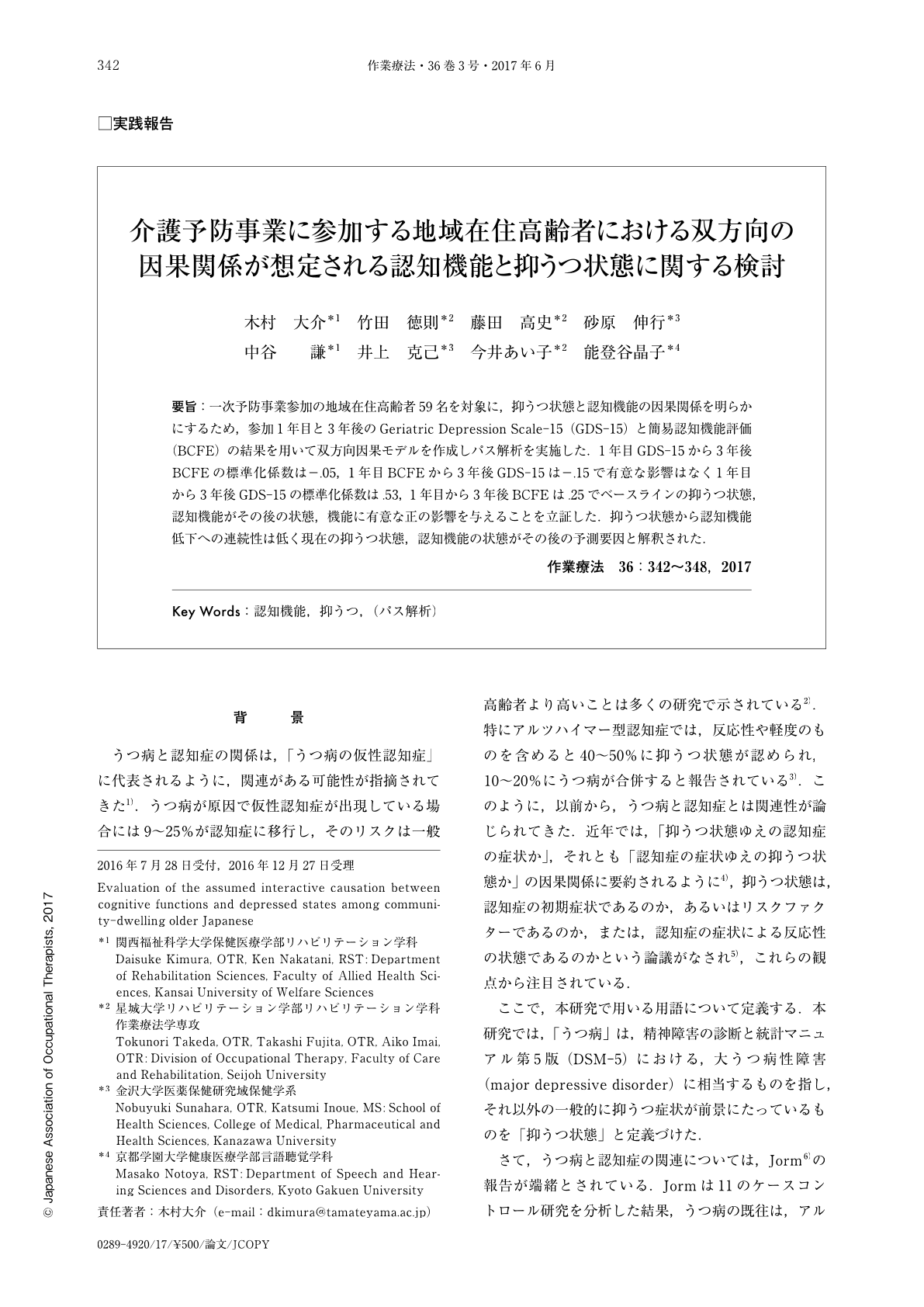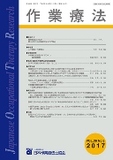Japanese
English
- 販売していません
- Abstract 文献概要
- 1ページ目 Look Inside
- 参考文献 Reference
要旨:一次予防事業参加の地域在住高齢者59名を対象に,抑うつ状態と認知機能の因果関係を明らかにするため,参加1年目と3年後のGeriatric Depression Scale-15(GDS-15)と簡易認知機能評価(BCFE)の結果を用いて双方向因果モデルを作成しパス解析を実施した.1年目GDS-15から3年後BCFEの標準化係数は-.05,1年目BCFEから3年後GDS-15は-.15で有意な影響はなく1年目から3年後GDS-15の標準化係数は.53,1年目から3年後BCFEは.25でベースラインの抑うつ状態,認知機能がその後の状態,機能に有意な正の影響を与えることを立証した.抑うつ状態から認知機能低下への連続性は低く現在の抑うつ状態,認知機能の状態がその後の予測要因と解釈された.
The purpose of this study was to explore interactive causation between depression and cognitive function. The study population consisted of 59 subjects from the community-dwelling elderly. Depression was evaluated using the Geriatrics Depression Scale-15 (GDS-15), and cognitive function was evaluated using a short version of the Mini-Mental State Examination (Brief Cognitive Function Examination: BCFE). Using these two evaluations, we created a cause and effect hypothesis model, and performed structural equation modeling analysis to standardize the model. In our results, “Baseline BCFE” indicates the first check assessed by BCFE, and “After GDS-15” indicates an assessment after 3 years from baseline. The factors were: “Baseline GDS-15” indicator variable, “After BCFE” (path coefficient = -.05); “Baseline BCFE” indicator variable “After GDS-15” (path coefficient = -.15); “Baseline BCFE” indicator variable “After BCFE” (path coefficient = .25, p<.05); and “Baseline GDS-15” indicator variable “After GDS-15” (path coefficient = .53, p<.05). The p-value for the chi-square model fit (79.9, DF = 61) was 0.053, and for GFI, AGFI, and RMSEA was 1.000, 0.999, and 0.000, respectively. Thus, all three fitness statistics indicated an excellent fit to the overall model. We concluded that the progression from a depressed mental state to a decline in cognitive function was low, and the current depressed mental state and the state of the cognitive function were interpreted as prediction factors for later cognitive decline.

Copyright © 2017, Japanese Association of Occupational Therapists. All rights reserved.


